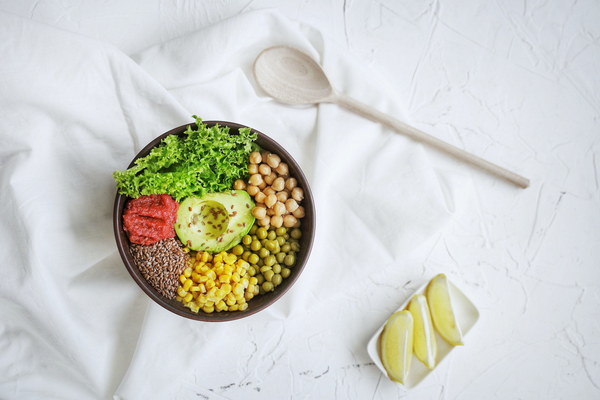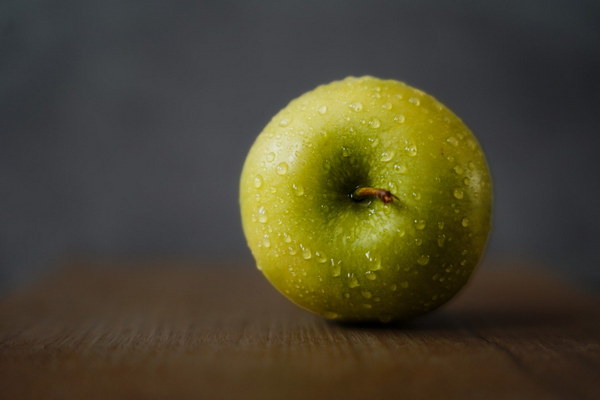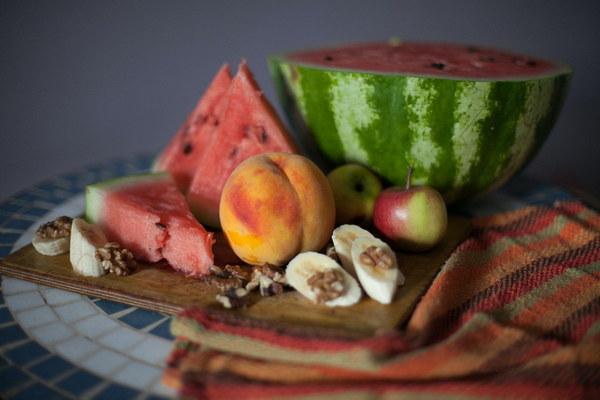Boost Your Immunity A Guide to Winter Nutrition
As the temperatures drop and the leaves change color, the transition from summer to autumn signals the start of the colder months. Winter is a time when our bodies need extra care and nourishment to stay healthy and strong. This article will provide you with a comprehensive guide to winter nutrition, including tips on how to incorporate essential nutrients into your diet during the chilly season.
1. Stay Hydrated
In winter, it's easy to assume that we don't need as much water because we're not sweating as much. However, our bodies still require adequate hydration to function properly. Drink plenty of fluids throughout the day, such as water, herbal teas, and warm broths. Adding slices of lemon or ginger to your water can enhance its flavor and provide additional health benefits.
2. Focus on Immune-Boosting Foods
Foods rich in vitamins and minerals can help boost your immune system during the winter months. Incorporate the following into your diet:
- Vitamin C: Found in citrus fruits, berries, kiwi, and bell peppers, vitamin C is known for its immune-boosting properties. It can also help reduce the duration of colds and flu.
- Vitamin D: Known as the sunshine vitamin, vitamin D is essential for immune function. During the shorter days of winter, expose your skin to sunlight whenever possible or consider taking a vitamin D supplement.
- Zinc: This mineral is crucial for immune system function and wound healing. Foods high in zinc include nuts, seeds, legumes, and red meat.

3. Include Antioxidant-Rich Foods
Antioxidants help protect your body from the damaging effects of free radicals. Foods high in antioxidants include:
- Berries: Blueberries, strawberries, raspberries, and blackberries are all excellent sources of antioxidants.
- Dark Chocolate: High in flavanols, dark chocolate can help reduce inflammation and improve blood flow.
- Green Tea: Rich in polyphenols, green tea has been shown to have numerous health benefits, including immune-boosting properties.
4. Consume Foods Rich in Omega-3 Fatty Acids
Omega-3 fatty acids have anti-inflammatory properties and can help support your immune system. Incorporate the following foods into your diet:
- Fish: Salmon, sardines, and mackerel are excellent sources of omega-3 fatty acids.
- Flaxseeds: Ground flaxseeds can be sprinkled on your morning oatmeal or added to smoothies.
- Chia Seeds: Similar to flaxseeds, chia seeds are a great addition to yogurt, oatmeal, or salads.
5. Stay Warm with Healthy Comfort Foods
Winter is the perfect time to enjoy warm, comforting meals. However, it's important to make healthy choices to avoid overindulging in high-calorie, processed foods:
- Soups and Stews: Use a variety of vegetables, lean proteins, and whole grains to create a nutritious and satisfying meal.
- Roasted Vegetables: Roasting vegetables in the oven can enhance their flavor and make them more appealing during the colder months.
- Hearty Salads: Incorporate a variety of leafy greens, nuts, and seeds to create a balanced, nutrient-rich salad.
6. Mind Your Gut Health
A healthy gut is essential for a strong immune system. To maintain a healthy gut:
- Eat Fermented Foods: Yogurt, kefir, sauerkraut, and kimchi are all excellent sources of probiotics, which can help maintain a healthy gut microbiome.
- Limit Processed Foods: Processed foods can disrupt your gut health by contributing to inflammation and acid reflux.
By following these tips and incorporating a variety of nutrient-rich foods into your diet, you can help keep your immune system strong during the winter months. Remember that a balanced diet is just one aspect of maintaining good health. Don't forget to get regular exercise, get enough sleep, and manage stress to ensure you're at your best during the colder seasons.









